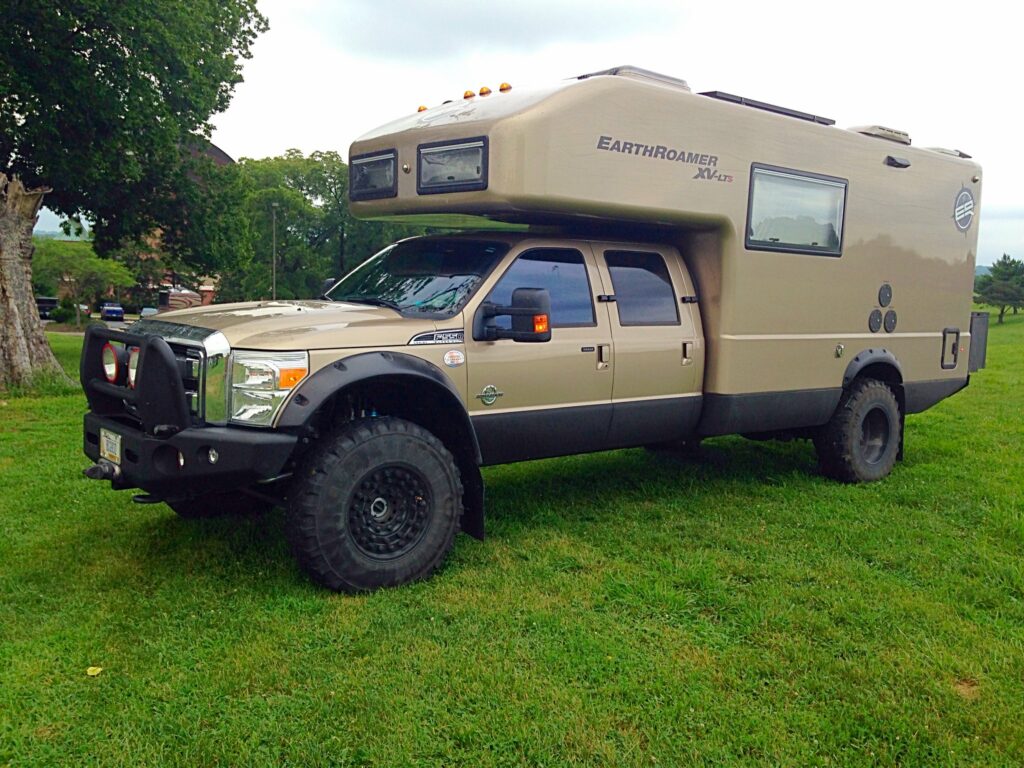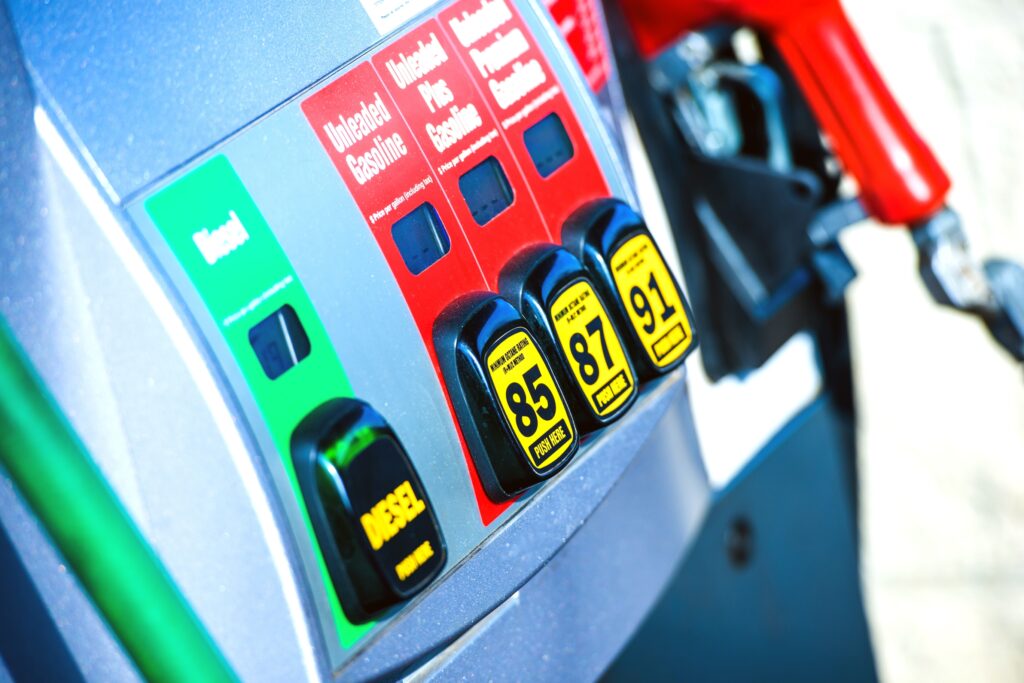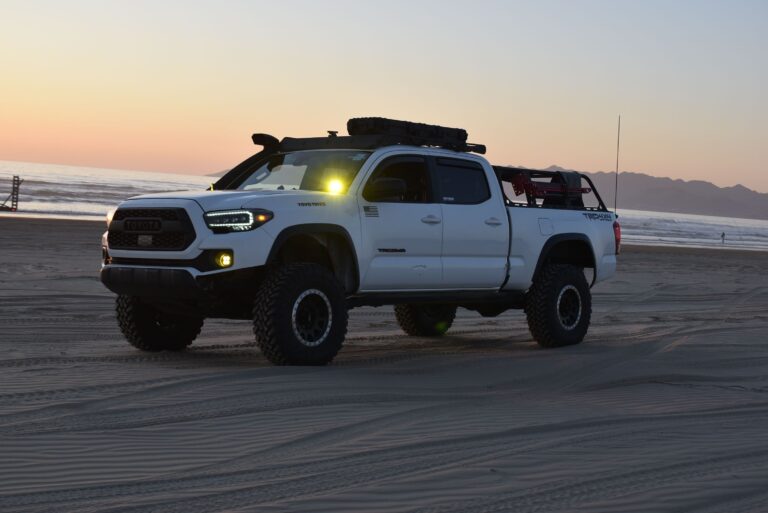In the United States gasoline vehicles are more common than diesels, however does their popularity overall mean that gas engines are better when it comes to overlanding? We will discuss the advantages and disadvantages to each so you can decide which best fits your needs.
Vehicles with gas engines are better for overlanding in most cases. Certain vehicles only come with a specific type of engine, and each one has its unique advantages, but given the option a gas engine is usually going to be the better choice.
Many popular overlanding vehicles only come with a gasoline engine (at least here in the U.S.), so if that is the case for the vehicle you are interested in, then the decision has already been made for you. However, if you are still trying to decide on a vehicle for overlanding one of the most important considerations will be what engine it has.
Advantages to Gas Engines:
Gas engines have many advantages over diesel engines for most overlanding rigs. They generally have a quicker and higher acceleration, and are quieter, all of which makes for a much more enjoyable driving experience.
Maintenance is often easier and cheaper on them, which is important because all vehicles need routine maintenance, and especially if you use your rig for overlanding eventually you will have a mechanical issue that needs to be fixed! A great example is something as simple as oil changes. A friend of mine drives a diesel pickup, and even though we both change our own oil, his costs twice as much as mine. Why? Because his takes twice as much oil, and it has 2 oil filters!
Another significant advantage to gasoline is that it is usually cheaper per gallon when you have to fill up. Not only that, but many gas stations don’t even carry diesel, and while on long trips to new or unknown areas you might want to be sure fuel will always be available for your rig.
Not only that, but if you are taking trips in the winter you will certainly want to stick with gas. Diesel fuel turns to gel at a temperature of 15º F or -9.5º C and you will have trouble starting your engine, while a normal gas engine should start as low as -40º F or -40 º C without a problem.
Advantages to Diesel Engines:
There are certainly some cases when opting for a vehicle with a diesel engine makes sense. Diesel trucks are better for towing and hauling heavy loads, and most larger overland and “expedition” rigs will only come with a diesel engine.

So if just have to have an EarthRoamer, a diesel is what you are going to get. “Earthroamer” by vwcampin is licensed under CC BY 2.0.
But aside from the absurdly expensive rigs that most of us only dream about, there are plenty of overlanders who may want to buy or build a rig based off of a large pickup truck platform. If that is the case, generally any truck that is a 1 ton (Ford F-350/Ram 3500/ Chevrolet 3500 etc.) or higher, is going to have a diesel motor. While a lot of these trucks may have an optional gas engine, if you are planning to buy or build a really heavy setup, or tow something heavy a diesel will be a better choice.
Another one of the advantages of diesel engines is due to their higher thermal efficiency, they usually get, on average, 20% better fuel mileage than gas engines. However, as mentioned before, gas is usually cheaper, so you will have to calculate if this better fuel economy equates to actual $$ savings at the pump in your area.
Disadvantages to Gas Engines:
While gas vehicles are likely the best option for most overlanders, it does have a few disadvantages. Gas engines are often known to have a shorter lifespan than their diesel counterparts. Though the majority of the Toyota crowd out there would quite upset with me if I didn’t mention there are many of their gas engines that have made it over a million miles with barely more than routine oil changes!

Disadvantages to Diesel Engines:
I already told you why I think gas engines are superior to diesel, but there a few more disadvantages of diesels I think are worth mentioning if you are still on the fence. Here are some considerations that would be deciding factors for me.
Let’s say you want a pickup truck and camper type. If you are looking for a rig capable of going off the beaten path, and onto some more rugged terrain you probably are going to want a smaller and lighter camper anyway. So you can probably get away with a ¾ ton or 1 ton truck with the gas engine. If you plan on building an Earthroamer or Global Expedition Vehicles inspired rig on a pickup chassis a diesel might be the right choice.
If you are interested in getting a van, you may have noticed that some some Sprinter vans come with diesel options. However, unless you plan to tow something with it, you should get a gas engine.
Another factor for me when it comes to diesel engines is their exhaust fumes, I cannot stand the smell of them, and frankly they give me a headache. Maybe that’s not an issue for you, but for me it’s a dealbreaker. Modern diesel engines (2010 or newer) also require a separate fluid called diesel exhaust fluid, or DEF, which is designed to “clean up” the emissions coming from the tailpipe. Which leads to one more expense, and thing to remember when it comes to maintaining your diesel engine. Not only that I still find diesel exhaust from these newer engines smelly and quite unpleasant.
Given all these factors, unless you are planning on building or buying a large, heavy expedition vehicle or towing a lot of weight, gasoline powered engines are going to be best for your overland rig. While diesel engines are known to last a long time and do get better fuel economy, there are plenty of gas engines that are equally reliable without all the headaches that come with diesel.

